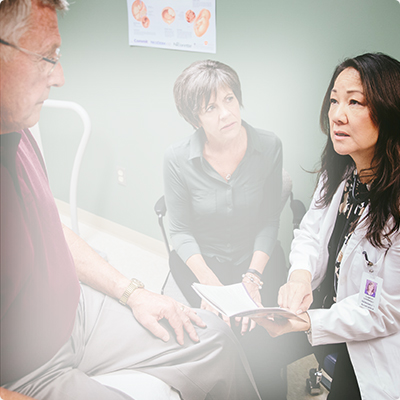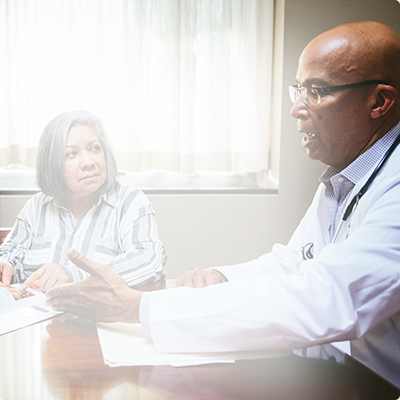Disclosure of Diagnosis
Almost 90 percent of Americans say if they were exhibiting confusion and memory loss, they would want to know if the cause of the symptoms was Alzheimer's disease.1Disclosure and discussion of a diagnosis of Alzheimer's disease or other dementia is an ongoing process that should be addressed during multiple office visits. You can refer patients and their families to the Alzheimer's Association to learn about Alzheimer's disease and dementia, find a support group, get advice about caregiving or participate in a clinical trial.
The following videos show the disclosure of an Alzheimer's disease diagnosis and a peer-to-peer discussion of important aspects of assessing cognition and disclosing an Alzheimer's disease diagnosis during a primary care visit. The videos, part of a three-part instructional series developed for primary care providers, use an actual primary care physician and patient with Alzheimer's disease. The videos were produced by the American College of Physicians Foundation and the Alzheimer's Association.
Disclosing an Alzheimer's diagnosis.
Peer-to-peer discussion of important aspects of assessing cognition and disclosing Alzheimer's disease during primary care visits.
Help and support for your patients
- 24/7 Helpline 800.272.3900: We can help your patients and their caregivers with questions and local support resources.
- Sharing your diagnosis: Tips for people diagnosed with Alzheimer's or another dementia.
- Message boards: Our online support community for people living with dementia and caregivers.
- Caregiving: Information and planning tools for families.
1. Harvard School of Public Health, Alzheimer's Europe. Value of knowing - Research - Alzheimer Europe. Value of Knowing. Available at: http://www.alzheimer-europe.org/Research/Value-of-knowing. Accessed October 13, 2011.

Access resources for your patients and their caregivers.
See Resources
Assessment and care planning services now eligible for reimbursement.
Learn More
